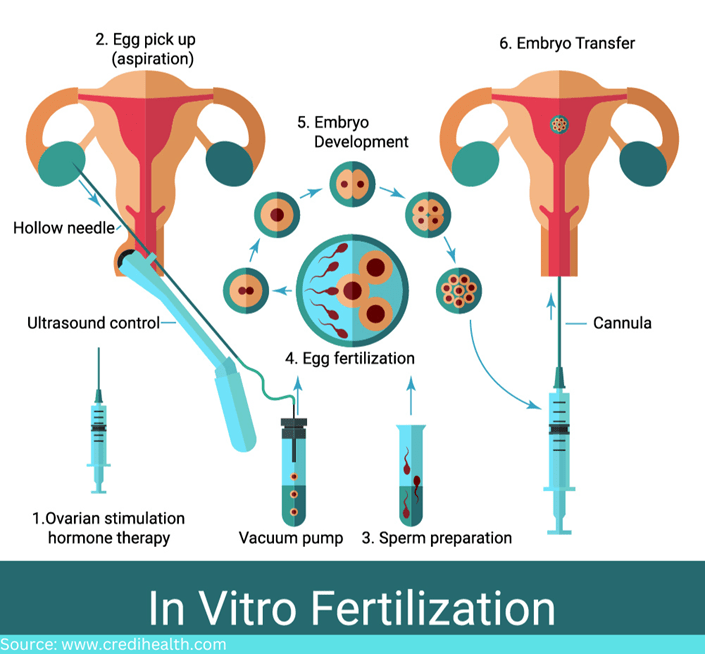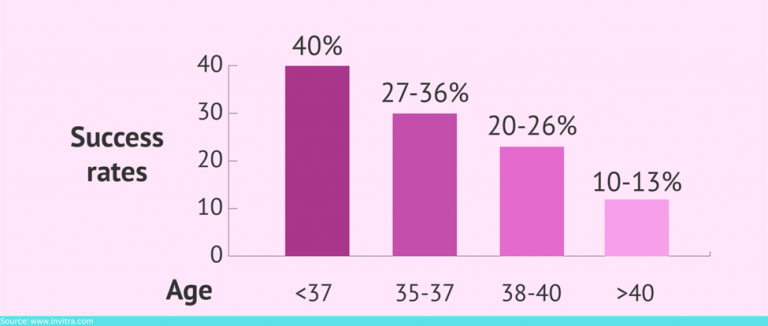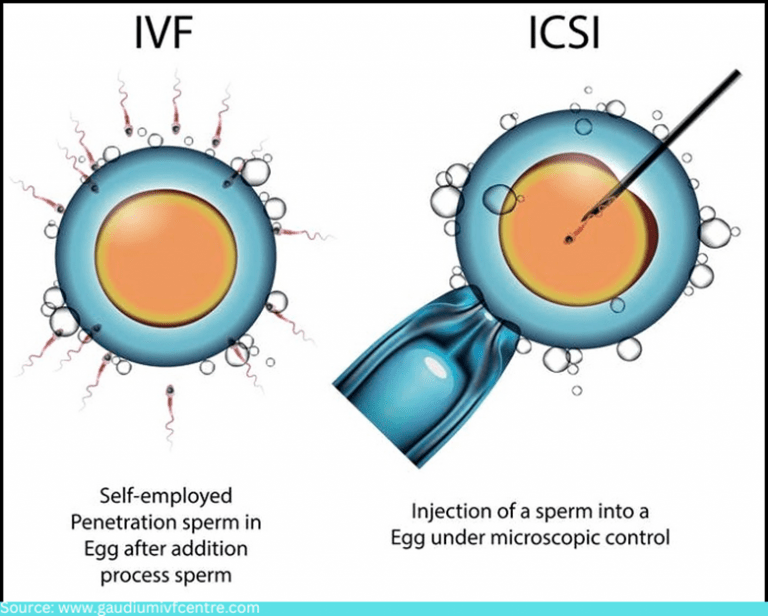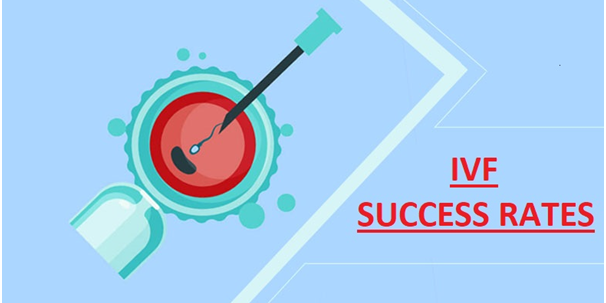In-vitro fertilization, commonly referred to as IVF, is an ART technique that involves fertilizing a woman’s egg with her partner’s sperm in a culture dish and then transferring the embryo to her uterus for implantation and pregnancy. IVF can be a very effective treatment for infertility and can help many people unable to conceive naturally to have a child. IVF has been a real boon for some couples and individuals, allowing them to fulfill their dream of having a family.
The success rate of this most widely used assisted reproductive technology (ART) is typically determined by the number of live births per embryo transfer. The live birth rate is the number of live births per embryo transfer.

The IVF success rate in India is typically between 50% – 60% and depends on various factors. Dr. Hrishikesh Pai says that a woman under 35 with mild infertility may have up to a 65% chance of having a successful pregnancy via IVF.
With over 35 years of expertise, Dr. Hrishikesh Pai is a top-notch IVF specialist in India who has helped countless people to realize their desire to become a parent.
IVF success rate in India by age
Let us look at the IVF success rate in India by age, i.e., how the success rate is affected by the age of the hopeful parent/s.
Age has traditionally played a significant role in women’s pregnancies, regardless of whether it is natural or through assisted techniques. The “age” of the woman having IVF therapy is one of the significant elements most likely to affect the success rate of the entire IVF procedure.
The quantity and quality of the available oocytes depend on the woman’s age. Renowned infertility specialist Dr. Hrishikesh Pai explains, “Most of the embryos created using oocytes from women over 42 are chromosomally defective or aneuploidy. If the woman is over 35 years old, her chance of having a successful IVF procedure decreases significantly.”

As per statistics:
- For women below 35, 40% of IVF cycles result in a live birth.
- For women between the ages of 35 and 37, the success rate is between 27% – 36%
- For women between the ages of 38 and 40, the success rate is between 20% – 26%.
- For women over 40, the success rate drops to about 13%.
“However,” IVF specialist Dr. Hrishikesh Pai adds, “it is important to keep in mind that these are just general estimates and that the actual IVF treatment success rate in India can vary depending on a person’s individual situation. It is always best to speak with a fertility specialist to get a more accurate idea of your chances of IVF success.”
Fertility expert Dr. Hrishikesh Pai further adds, “The father’s aging also affects fertility because aging degrades the integrity of the sperm by damaging its DNA, which lowers both its ability to fertilize and the quality of the resulting embryos. Men over 45 have significantly more damage to their sperm DNA.”
Factors that affect the success rate of IVF
Several factors can affect the success rate of in vitro fertilization (IVF), including the woman’s age, previous pregnancy, the cause of the fertility issues, the quality of the eggs and sperm, and the overall health of the woman.
Age
As mentioned above, women are reported to have the best chances of having a successful IVF procedure between the ages of 24 and 34 because this is when they are thought to be the most fertile. However, the success rate decreases after a woman turns 40.
Previous pregnancy
A couple’s chances of getting pregnant through in vitro fertilization are better and higher if they have previously had successful pregnancies.
Cause of the fertility issues
A problematic IVF could result from a medical history of numerous and/or repeated miscarriages and problems with fertility. Notable fertility problems include the following:
- Anomalies in the uterus
- Fibroid tumors
- An ovarian disorder
- How long has a couple struggled to get pregnant
Quality of the eggs and sperm
Age, stimulation procedure, and ovarian reserve are a few variables that can impact the quality of egg cells and embryos.
Dr. Hrishikesh Pai says, “If the eggs are of poor quality due to age or other factors, you still have the option of using a donor egg to increase the chances of a successful pregnancy.”
Physical health
The patient’s overall health is essential in creating a healthy and happy environment for an embryo. If you smoke, you should give up smoking and drinking at least 3 months before the procedure. Ensure that you maintain a healthy weight. The body’s capacity to digest hormones and reproductive medications has been proven to be impacted by obesity.
Mental health
Your mental health also plays a vital role in the journey of a successful pregnancy. So please engage in activities that you enjoy and make you feel good, be it exercising, listening to music, meditation, etc.
Other factors that can affect the success rate of IVF include the experience and expertise of the fertility clinic and the use of assisted reproductive technologies such as intracytoplasmic sperm injection (ICSI) and preimplantation genetic testing (PGT).
With success rates of 40-50% live birth rate per attempt, Dr. Pai is often regarded as the doctor with the highest IVF success rate in India. You can have a look at our success rate through this link.
Steps taken by fertility experts to increase IVF success rates
Most clinics now use a “freeze all” procedure, in which embryos created using IUI, ICSI, or traditional IVF are frozen rather than eggs. IVF success rates in India have increased significantly because of modern reproductive techniques.
Endometrial receptivity analysis (ERA) is a technique that studies the endometrium at a molecular level. It could help you with recurrent implantation failure.
Since most implantation failures occur due to chromosomal anomalies in the embryos in advanced maternal age, Preimplantation genetic testing (PGT) is strongly recommended to improve the chances of implantation.

Intra Cytoplasmic Sperm Injection (ICSI), a subset of IVF, could be a ray of hope. If conventional IVF treatments are not helping, you can undergo an ICSI procedure during which a single high-quality sperm is picked up and inserted directly into an egg using a fine glass needle in a laboratory.
Dr. Hrishikesh Pai adds, “In vitro fertilization requires using the crucial blastocyst culture and transfer (IVF) method. While reducing the danger of multiple pregnancies, this method raises pregnancy rates.”
Steps you can take to increase your chances of a successful IVF
There are several steps that a patient can take to improve the success rate of in vitro fertilization (IVF), including the following:
- Maintain a healthy lifestyle: Eating a balanced diet, regular exercise, and avoiding smoking and excessive alcohol consumption can help improve fertility and increase the chances of success with IVF.
- Have a pre-treatment evaluation: Before starting IVF, it’s crucial to have a thorough evaluation to identify and address any underlying medical conditions that could affect fertility.
- Choose a reputable fertility clinic: The success rate of IVF can vary depending on the experience and expertise of the fertility clinic, so it is vital to choose a clinic that has a good track record and a high success rate.
- Avoid high-impact activities: During the IVF cycle, it is important to avoid activities that could potentially harm the developing embryos, such as high-impact exercise or exposure to toxic substances.
- Important supplements: You do not always get all your calories from fruit. You will need to take supplements at this stage. Folic acid, calcium, omega-3 fatty acids, vitamins, and selenium are some supplements that can help with IVF performance. Your doctor will recommend the ones you will need.
- Relax and unwind: Trying out various fertility therapies may have affected your mental health. Stress has a negative effect on fertility, so try to de-stress by doing things you enjoy and meditate regularly.
- Men should avoid ejaculation: Men should not masturbate or have sex for at least 3 – 4 days before the sperm retrieval procedure – this will aid in increasing the sperm count and quality.
By following these steps, you can improve your chances of success with IVF and increase your chances of having a healthy baby.
Conclusion

People desiring parenthood but unable to achieve it naturally have an excellent alternative in the form of IVF. It is important to note that the success rate of in vitro fertilization (IVF) can vary depending on several factors, including the woman’s age. In general, women under the age of 35 have the highest success rates with IVF, which declines as the age of the woman increases.
Please remember that your mental and physical well-being also affects your chances of becoming pregnant. In addition, IVF can take a toll on your mental health, so be prepared for this stage of your life. Discuss your expectations and fears with a therapist. Ensure that your partner, family, and friends are behind you in this endeavor.
If you or a loved one is struggling to get pregnant, please do not delay getting medical assistance. Get in touch with the highly-accomplished IVF expert, Dr. Hrishikesh Pai, for personalized advice, guidance, and effective treatment options.
FAQ
Is IVF 100 percent successful?
The success rate of IVF can vary depending on a number of factors, such as the age of the woman undergoing the procedure, the underlying cause of the fertility issue, and the overall health of the woman.
What age is IVF most successful?
In general, the success rate of IVF tends to be higher for women under the age of 35 and decreases as a woman gets older. However, there are many other factors that can affect the success rate of IVF, and it is important to discuss these with a doctor or fertility specialist.

